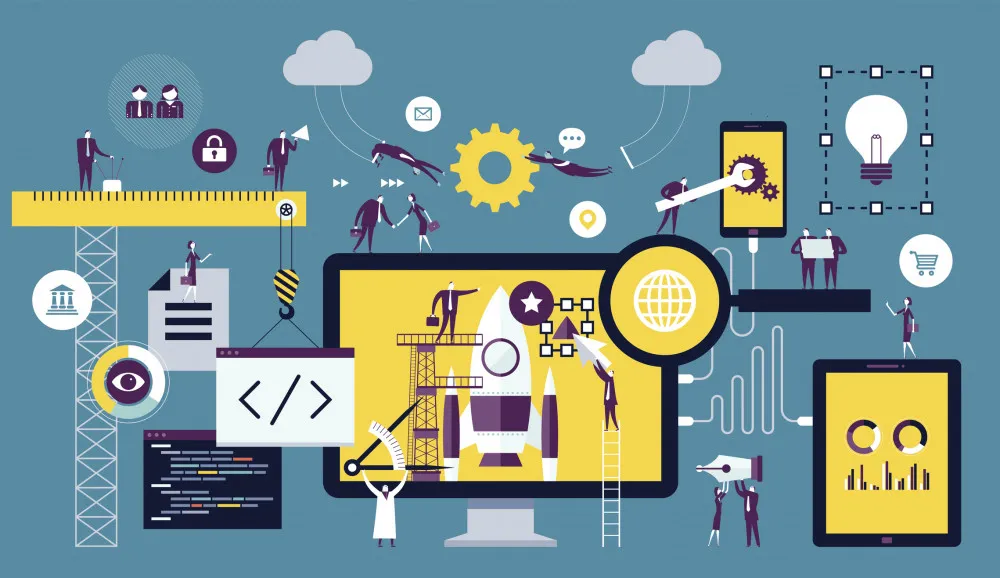The emergence of the Fourth Industrial Revolution (4IR) for education created possibilities for billions of people around the world to connect and be efficient in their duties.
There was a shift from simple digitization which is the third industrial revolution to innovation based on a combination of technologies which is the 4IR.
- Reps move to regulate Nigeria’s participation in peacekeeping operations
- Fuel crisis: Buhari apologises to Nigerians, orders clampdown on saboteurs
The emerging technology in fields of artificial intelligence, robotics, the internet of things, autonomous vehicles, 3-D printing, nanotechnology, biotechnology, material science, energy storage and quantum computing has been embraced by people, especially the youths, as it changes the way to do things.
Though 4IR subjects are not enshrined in Nigeria’s education curriculum, schools, governments and organisations are making efforts to inculcate the knowledge in students so that they will not be left out.
At an event to showcase ‘4IR Education Africa’ organised by the Federal Capital Territory Secondary Education Board and the African Socio-Cultural Development Foundation in Abuja on Tuesday, students from four government secondary schools displayed their knowledge on the 4IR.
These students unanimously noted that 4IR represents the fundamental change in the way they do things, which in turn forces them to rethink on how the country can improve and companies can work efficiently with technology.
They said children must learn, acquire and master the skills.
While speaking, the Secretary for Education FCT, Sani Dahir Elkatuzu, said he believes the first revolution brought serious problem in Africa while 4IR provides a level playing ground as it does not depend on the level of development but talents.
“I believe that is what the African man has, the brain, but because of poverty and hunger we could not put to proper use our brain and this is the time for Africa to put to use our talent.”
For Assistant Director of Bilateral Relations, FCT Secondary Education Board, Yakubu Ibrahim, with smart technology becoming more mainstream, there is a need to consider the impact 4IR will have on society and the workforce.
“If we need to be relevant and marketable, then we require human capacity in 4IR, so it becomes necessary for all and sundry to adopt it,” he said.
Speaking on the choice of secondary schools for 4IR knowledge, Ibrahim said with the number of young and upcoming generation, there is dire need to formulate policies that could harness the potentials of the energetic population for national development.
He said the attendant benefit of 4IR careers in providing self-employment and the positive use of information technology, students can channel their energies in the right direction for overall development of the nation.
The CEO of the foundation, Dr. Christopher Anthony Chukwu, said their target is every student in public schools and as of now, they have started with 280 schools using SS3 students in four schools in Abuja for the pilot phase.
He said they are giving the children technology knowledge and that is being done free of charge.
“African children are one of the brightest. What we are doing now is grooming them in their own nation with the knowledge they need for the way forward,” he said.
“We know what they need to know and giving them the best and scholarships to go and acquire what they need so that they can come back. Not to stay there because we give them the scholarship, then the contract and give them the jobs first. So they come back and apply it here in Nigeria and earn in hard currency so we can develop,” he said.
The Secretary and Director of SEB, Mrs. Nape Eneje, said they will open up the programme for other schools so that they will also be able to tap the advantage of the training and open themselves to better days ahead.
She said looking at the 21st century, there is no space for analog people and so “we must be technologically driven.”
Eneje, however, noted that maybe with time it will be part of the curriculum but for now they don’t have what it takes to be in the curriculum because curriculum development takes process and involves other agencies.
“We can only suggest and say if it is part of the curriculum, I think it will make it go wider and every child that is in school will get that, but we will look at them,” she said.

 Join Daily Trust WhatsApp Community For Quick Access To News and Happenings Around You.
Join Daily Trust WhatsApp Community For Quick Access To News and Happenings Around You.


